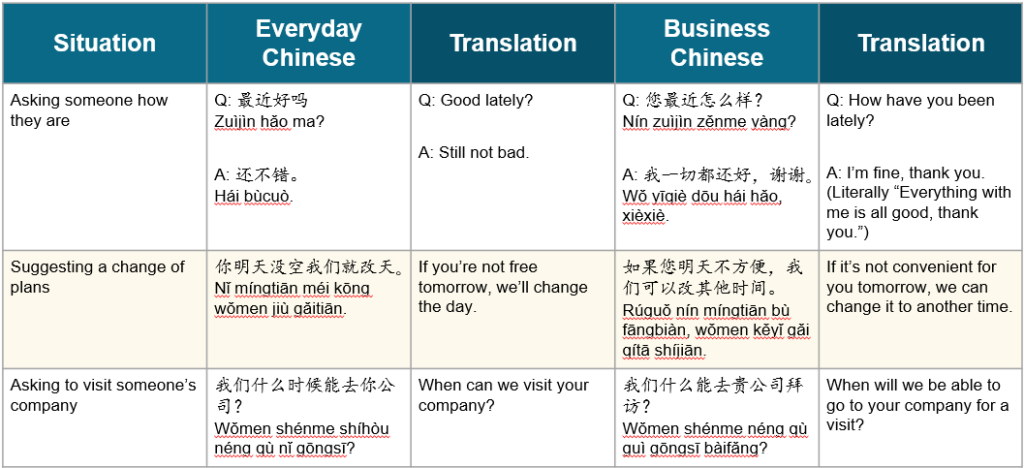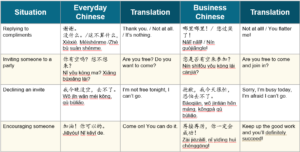Learning Chinese out of personal interest, because you want to visit China, or just for fun? The chances are that the Mandarin you’re learning now is everyday Chinese.
But if you’re considering working for a Chinese company or doing business in China, learning business Chinese could put you a step ahead of other candidates.
Why the type of language you use matters
There are two huge factors in Chinese social culture: 关系 (guānxì – relationships/connections) and 面子 (miànzi – face). With miànzi, how you support or boost someone’s reputation is just as important as who you know. And the way you communicate with people has a huge impact on both of these concepts.
As you might imagine, tricky situations can come about in business, for example when navigating meetings and negotiations. And how you come across when you speak could affect whether you gain, save or lose face.
If you want to keep your business guānxì intact – or even strengthen them and make more connections – knowing how to say what you want to say using business Chinese is key.
How everyday and business Chinese differ
You might think business Chinese is just knowing ‘business-y’ words like ‘contract’ (合同 hé tóng), ‘deadline’ (期限 qī xiàn) and ‘annual growth rate’ (年增长率 nián zēng zhǎng lǜ). But there’s more to it than that.
When in a professional setting, there are a few basic rules worldwide: be polite, avoid swearing and slang, and respect seniority.
With business Chinese, however, there are specific words, phrases and formal expressions – not only for respect, but for professionalism too.
Vocabulary
Here are some common terms that you’ll probably pick up on in a Chinese workplace. Note in particular the two examples beginning with ‘you’ in English: 您 nín and 贵 guì. The former is the formal version of 你 nǐ, and the latter emphasises respect towards the company rather than just the individual.

Grammar
While you can get away with replying to questions with short answers and dropping the subject of a sentence in daily Chinese, business Chinese calls for complete sentences. This not only shows respect, but makes sure your meaning is absolutely clear.

Expressions
Expressions used in Business Chinese often reflect the considerate nature of Chinese culture. While your language can be more direct with friends, business Chinese is more indirect to avoid sounding harsh or arrogant.

Idioms are often popular in the Chinese workplace, too. While the West has business clichés like ‘blue sky thinking’, ‘low-hanging fruit’ and ‘singing from the same hymn sheet’, you might hear these in China:
一举两得 yī jǔ liǎng dé (one tool, two uses): to kill two birds with one stone
实事求是 shí shì qiú shì (seek truth from facts): to be realistic
好事多磨 hǎo shì duō mó (good things, more torment): the road to happiness is strewn with setbacks/good things don’t come easily
Did you know that Lingoinn provides business Chinese courses with our homestay learning programmes? Visit the Business Immersion page to find out more.





